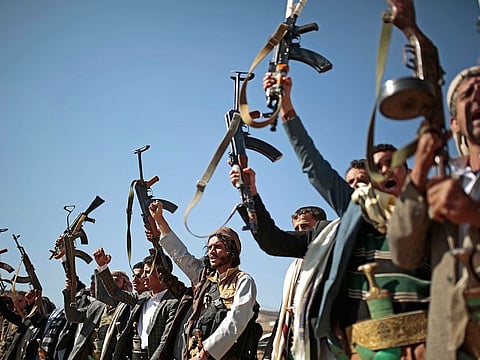Yemen government should speak in a unified voice
Elements within the government are complicating efforts to liberate the country

Elements within the Yemeni government are complicating efforts to liberate the country from Iran-backed Al Houthi control by stirring division and controversy.
Some elements have accused the UAE of sending southern separatist fighters to the Yemeni island of Socotra.
Not only have the accusations been unequivocally refuted by UAE officials, the false comments have only served to foment division between the Saudi-led coalition and the Yemeni government.
It must be recalled, that the coalition came to Yemen at the request of the Yemeni government, to help reverse an Al Houthi coup carried out in late 2014.
Since then, Saudi Arabia and the UAE, along with other Arab countries, have made huge sacrifices to help restore the internationally-recognised government of Abd Rabbo Mansour Hadi.
Not only has the coalition given substantial financial aid to the war-stricken country, they have also paid the price in blood, with their own soldiers on the ground martyred during the course of the war.
The latest comments this week show that members of the Yemeni government are not quite in sync with each other.
It is extremely reckless to make such false statements in the midst of such a devastating war.
This only benefits the enemies of the Yemeni people — the Al Houthis.
The UAE has also previously denied Yemeni accusations that it is seeking control of the island.
The southerners say they have more than 50,000 fighters armed and trained by the UAE and aim to restore the independent state of Southern Yemen, which united with northern Yemen in 1990 at the end of a long war.
The issue of independence should be decided by the Yemeni people.
However, it is important to remember that the southerners have played a critical role in helping defeat Al Qaida and run it out of main population centres.
This monumental achievement was only made possible with dedicated UAE assistance and training.
Their important victories should not be sullied by such baseless accusations which are tantamount to stabbing the coalition in the back.
There seems to be some elements emerging from within the Yemeni government with sinister intentions to divide and weaken the government.
Therefore, the government should work hard to distance itself from such destabilising elements.
It is imperative that the Yemeni government speak with one voice and condemn any attempts from within to divide it or alienate important members of the coalition.



